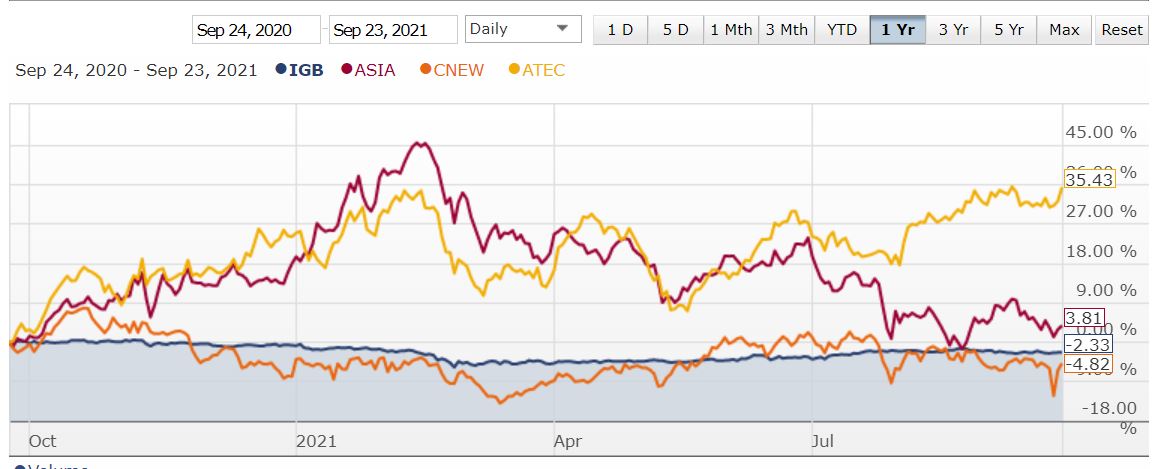China already has a glut of unfinished apartments and now residential towers are being blown up because developers are running out of money as demand is slowing, creating ‘ghost cities’.
Over and above the Evergrande-related concerns, China’s economic recovery is starting to lose momentum. That mostly reflects the slowdown in credit growth. Of note in that respect, and in the absence of significant monetary stimulus, the Chinese economy should continue to slow in coming months and quarters, encouraging investors to rethink their asset allocation.
Should the Evergrande, Shenzhen-based corporate giant sink, it would be inevitable that Chinese demand for Australian iron ore would also drop.
The valuable iron ore resource has held up strongly as China imposed sanctions on Australian barley, lobster, beef, lamb, wine and cotton, but interestingly left iron ore alone through necessity.
Will the Chinese market fall further?
Chris Watling from Longview economics in London has made the following observations about the Chinese economy.
While a major shock/crisis in China is likely to be averted, a marked fading of momentum is underway in China’s economy.
- Investment spending is shrinking Year on Year in both private (-7.4%) and state (-9.7%) sectors (with total investment spending down 8.4%.
- Housing activity has slowed, with housing starts and excavator sales shrinking. Linked to that, residential construction investment is growing at its slowest pace since the 2015 slowdown.
- Consumption has remained weak despite the fall in headline unemployment and a bounce in income growth. Retail sales, for example, are only up 2.5% while car sales have fallen to the bottom of their range of the past 5 years. Of interest in that respect, having significantly increased borrowing during the pandemic, borrowing has slowed in recent months, possibly reflecting some deleveraging in the household sector.
General barometers of economic activity are also weak. That includes the sharp fall in the new export orders.
Compare Asia technology v Australia technology v China new economy
Our Asset Allocation advice has been to pull back on the Asian technology component of our portfolio’s and re allocate a portion to the better performing Australian Technology (ATEC ETF), as the 12 month performance table below indicates. You can see the two ETF’s moved together in the first part of the year but then started to move away from each other as the China issues emerged.
This is against a backdrop of benign growth for the China ETF (CNEW) as the above commentary reports.
General Advice warning: The content of this newsletter is for the clients of Best Interest Advice and it’s other related services. The content is general advice only and has not considered your personal situation or objectives and cannot be relied upon. Please consult a financial adviser to provide you with personal advice. We cannot guarantee the accuracy of this information as it is sourced from third parties and general media. All attempts to verify its contents have been made and we only rely on reputable sources.






